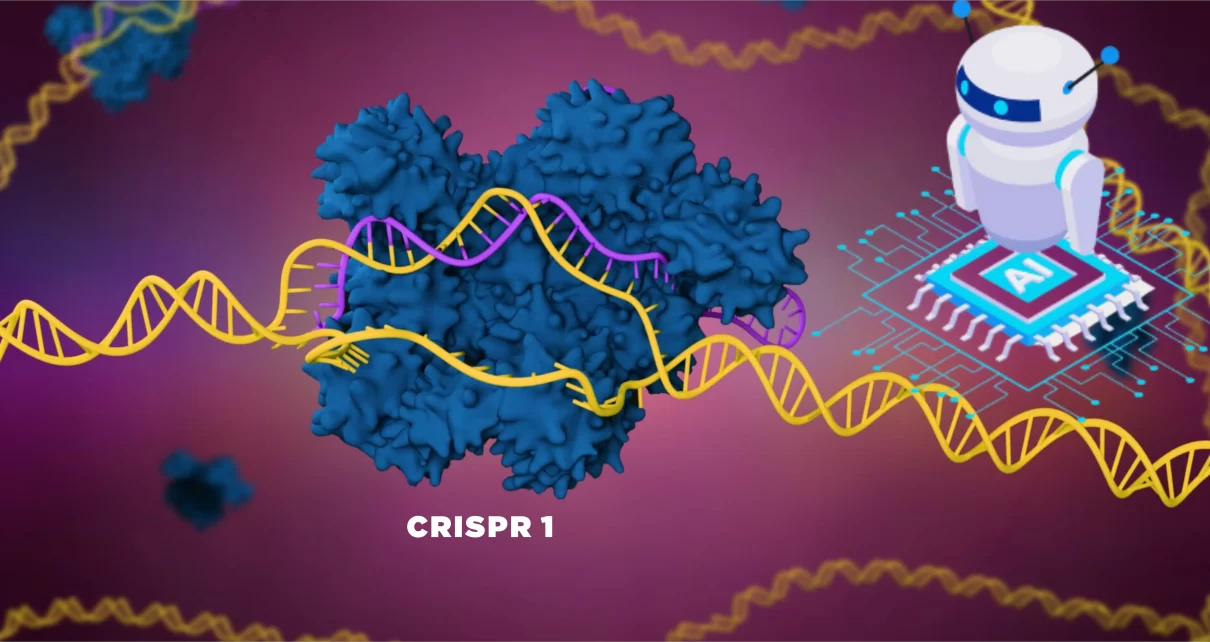In the fast-evolving realm of biotechnology, a groundbreaking development is on the horizon.: the fusion of generative artificial intelligence (A.I.) with the gene-editing technology known as CRISPR. This development promises a future where combating disease may reach unprecedented levels of precision and efficiency.
Recently unveiled by Profulent, a Berkeley-based startup, this innovative A.I. system generates blueprints for microscopic biological mechanisms capable of editing human DNA. Drawing parallels to the A.I. boom ignited by ChatGPT, this technology represents a significant leap forward in the field of genetic engineering.
Similar to how ChatGPT harnesses vast datasets to generate coherent language, Profulant’s A.I. analyzes extensive biological data, including existing CRISPR mechanisms, to create novel gene editors. These editors, derived from Nobel Prize-winning CRISPR methods, hold the potential to revolutionize gene therapy by offering enhanced flexibility and efficacy.
Traditionally, CRISPR technology relies on natural mechanisms sourced from bacteria. However, Profulent’s A.I. constructs entirely new gene editors, unseen in nature but inspired by its principles. According to James Fraser, a bioengineering professor at the University of California, San Francisco, these synthetic editors represent a novel approach, shaped by evolutionary insights yet distinct from anything previously observed.
A significant milestone in this endeavour is the release of OpenCRISPR-1, an AI-generated gene editor made freely available by Profulent. By open-sourcing this technology, the company invites collaboration from individuals, academic institutions, and enterprises, fostering innovation and accelerating scientific progress.
While the unveiling of synthetic gene editors marks a significant step forward, clinical trials are pending to validate their efficacy. Fyodor Urnov, a gene editing expert at the University of California, Berkeley, highlights the considerable hurdles in bringing new editors to market, emphasizing the need for rigorous preclinical studies.
While the unveiling of synthetic gene editors marks a significant step forward, clinical trials are pending to validate their efficacy. Fyodor Urnov, a gene editing expert at the University of California, Berkeley, highlights the considerable hurdles in bringing new editors to market, emphasizing the need for rigorous preclinical studies.
Despite the current obstacles, the potential of generative A.I. in healthcare in undeniable. By continuously learning from vast datasets, these systems hold the promise of refining gene-editing techniques, potentially enabling personalized medicine on an unprecedented scale.
However, ethical considerations loom large in this domain. Scientists caution against premature applications of CRISPR and synthetic editors, citing potential risks such as unintended side effects and ethical concerns surrounding human enhancement and genetic modification of embryos.
Also Read: Ranveer Singh Files FIR Against The Social Media Account For His Deep Fake Video Circulation
In the long term, the convergence of A.I. and gene editing could usher in a future where medical interventions are tailored to individual patients with unparalleled precision and efficiency. Dr. Urnov envisions a world where CRISPR-based treatments can be swiftly developed and deployed, revolutionizing healthcare delivery.
As research in this field progresses, it is imperative to navigate the ethical and regulatory complexities associated with genetic manipulation responsibly. While the potential benefits of these technologies are vast, ensuring their safe and ethical deployment remains paramount.
In conclusion, the fusion of generative A.I. with CRISPR heralds a new era in genetic engineering, promising transformative advances in healthcare. With careful oversight and continued scientific inquiry, these technologies may offer unprecedented opportunities to address some of humanity’s most pressing medical challenges.




